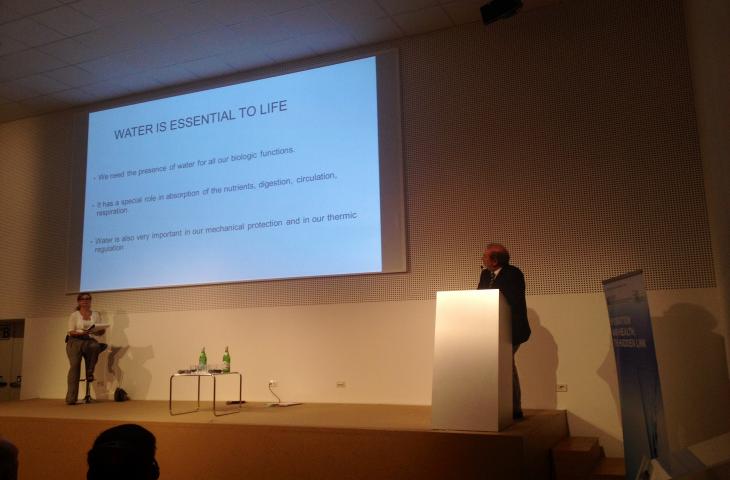MILAN – Water is a valuable element for our health and is essential for life. At the same time, however, it is fundamental to human activities which affect the planet, these being agriculture, the economy and industry. Professor Pedro Cantista, from the University of Porto and President Elect of the International Society of Medical Hydrology, gave a lesson on the value of water and proper hydration within the international conference organised by FEMEC and San Pellegrino at Expo on 11th June this year. The expert is one of the signatories to the Manifesto of Hydration and the petition to institute a National Day of Hydration in Italy.
Water and the human body
Water maintains the homeostasis of our bodies, enabling nutrients to be transported to the cells and metabolic functions to take place. It removes and expels waste products from metabolic processes and is the main component of all our cells and tissues. It plays a special role in the absorption of nutrients, digestion, circulation, and respiration and is essential for regulating body temperature.
Water intake
Adequate water intake is fundamental to our health. It can be obtained from various sources, ranging from drinks, to foods with a high water content. These represent around 20% of total water consumption. The quantity will vary according to our requirements and across different age groups. For example, in the first 6 months of life we need 0.7 litres per day, while in adult males, the quantity can even be as much as 3.7 l/day and in women, 2.7 litres /day. The latter, however, should have a daily allowance of 3.8 litres while breastfeeding,
The theme of Expo Milano 2015
"Feeding the planet, energy for life" implicitly focuses attention on the water/food relationship. From this it emerges that we consume enormous quantities and very often, poverty and hunger are linked to a lack of water supply. Our objective is sustainability. As everyone knows, only 0.5% of all water on the planet is destined for human consumption. In 2020, it is estimated that there will 900 million more people living in the main urban areas and this could create serious problems for water supplies. Moreover, in 2050, agriculture will need to produce 60% more food than it currently does and the manufacturing industry will require a 400% increase in water consumption.
The conclusion is very simple: each of us should carefully respect and use our water resources.











